Bulgaria does not want a serious reform of the common EU agriculture policy
Adelina Marini, December 15, 2010
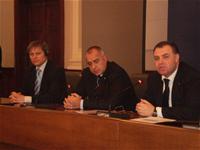 There is nothing wrong in defending national interests, unless they are unambiguously stated. This is exactly the case with the Bulgarian position on the reform of the Common Agriculture Policy (CAP) of the EU, expressed by Minister for Agriculture and Foods Miroslav Naydenov on Friday after a meeting with EU Commissioner for Agriculture Dacian Ciolos. According to Mr Naydenov "there shouldn't be a very big reform because Bulgaria and Romania have done a lot to cover European criteria". Although Bulgaria has absorbed the most EU funds in terms of direct payments for agriculture subsidies (compared to other EU programmes) and under the Rural Development Policy, nonetheless the statement of interests in this area is still quite general.
There is nothing wrong in defending national interests, unless they are unambiguously stated. This is exactly the case with the Bulgarian position on the reform of the Common Agriculture Policy (CAP) of the EU, expressed by Minister for Agriculture and Foods Miroslav Naydenov on Friday after a meeting with EU Commissioner for Agriculture Dacian Ciolos. According to Mr Naydenov "there shouldn't be a very big reform because Bulgaria and Romania have done a lot to cover European criteria". Although Bulgaria has absorbed the most EU funds in terms of direct payments for agriculture subsidies (compared to other EU programmes) and under the Rural Development Policy, nonetheless the statement of interests in this area is still quite general.
What is the substance of the Bulgarian position?
According to Bulgaria CAP's financial volume in the common EU budget should be kept so that the country could benefit at the maximum in order to reach at least the average level of EU countries. Besides, Sofia insists instead of 2016, as written in the Accession Treaty, the ceiling of direct payments to be reached yet in 2014 with the new financial perspectives (2014-2020). The argument for this insistence is very interesting - Bulgaria could thus receive additionally around 226 mn euro. "This could be an indeed good support for both countries that are the poorest in the EU in an environment of this economic crisis, and it would be an expression of solidarity towards both countries because wee see that there is solidarity towards other countries in a much larger scale for much harder situations".
Minister Naydenov did not elaborate what he had in mind in terms of "solidarity towards other countries in much larger scale" but he probably meant the financial assistance Greece and later Ireland have received from the EU and the IMF.
Another Bulgarian request is the opportunity to transfer funds from one measure to another in the Rural Development Policy, as well as a special measure to be created, aimed at the tobacco-producing regions. "Because it is clear that the only way to support these people is not through direct subsidies, which is forbidden by the European Commission, but through the creation of mechanisms and through direction of EU funds to these regions", Miroslav Naydenov explained.
Dacian Ciolos's response was that, yes, Bulgaria should benefit at the most from the reform in CAP but it also has to prove its abilities to manage financial aid. The Commissioner also said that it would be in both Bulgaria's and Bulgarian producers' interest the system for control to be with a high quality so that the funds that were being provided for farmers to be successfully absorbed.
Mr Ciolos indirectly hinted that Bulgarian produce should be modernised in such a way that would allow it go out on the European market, being of high quality. This could happen through modernisation, assisted by the Rural Development Policy. The diplomatic statement of the Commissioner for Agriculture means practically that the problems which Bulgaria has with catching-up on European standards are its own. CAP gives enough opportunities and it depends solely on Bulgaria to benefit as much as possible from them.
With regard to the adjustment of farmers' subsidies of the new member states with those of the old ones, Commissioner Ciolos again recalled that this was enshrined in his Communication to the Council of Minsters and to the European Parliament, but he underlined, responding to an euinside question: "Regarding your second question, this is one of the proposals which we made and sent to Parliament and the Council on the reform of the CAP - for greater justice and equality, which does not mean mathematical equality, because there are differences among the member states. But we cannot continue applying various principles to the old and the new member states".
In fact, minister Naydenov is right to insist the CAP budget not to be reduced, although the reduction of subsidies is happening gradually with each new programming period. In the current financial perspectives (2007-2013) the Agriculture Policy is consuming a little over 40% of the overall budget of the Community. But the number of countries that ask for additional reduction on behalf of investments in new policies that would boost economic growth and would create new jobs is not to be ignored.
The disputes are yet to be inflamed with the negotiations on the new financial framework and it is expected the inflammation to start yet in 2011. This is the reason why Commissioner Ciolos presented such a compromise Communication as the pressure on him is enormous from producers, lobbies and politicians, and from the international situation. Part of the international pressure comes from two main lines: the constantly growing population of Earth which will need more and more food and climate change, which will be a great challenge for farmers. According to official forecasts yet next year or in 2012 the population of the planet will reach 7 bn people and in 2050 it will be 9 bn.
And all this against the backdrop of more frequent droughts, irrigation water shortages, floods and other disasters which will have a direct impact on food production and therefore on prices. Given the acceleration of international trade negotiations within the Doha Round, however, the EU is under pressure also to gradually phase out subsidies which make the produce of poorer states around the world uncompetitive.
The short-term challenges the CAP is facing
For now the shortest challenge EU's agriculture policy is facing is the adoption 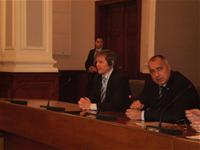 of EU's budget for next year. Responding to an euinside question Mr Ciolos outlined a very unpleasant scenario: "Direct payments in fact are being made in the first four months of the year, so the larger part of these payments will be paid in these months. But unless the budget is approved, the usual deadlines will not be kept. And in fact the national budgets would suffer because member states will have to make the payments and than to recover the money from the European Commission. But if the Commission cannot reimburse, then member states might face significant budget deficit increases in the first months".
of EU's budget for next year. Responding to an euinside question Mr Ciolos outlined a very unpleasant scenario: "Direct payments in fact are being made in the first four months of the year, so the larger part of these payments will be paid in these months. But unless the budget is approved, the usual deadlines will not be kept. And in fact the national budgets would suffer because member states will have to make the payments and than to recover the money from the European Commission. But if the Commission cannot reimburse, then member states might face significant budget deficit increases in the first months".
After this answer, prime minister Boyko Borissov also got involved in the conversation by making quite an odd proposal against the backdrop of the functioning of the EU and the way of taking decisions: "I was one of the people who insisted at the Council of Europe [the PM probably meant the European Council] not to deal with the budget. There is a European Commission which proposes the budget and a European Parliament which approves and there is the place for disputes and, respectively, for debating on various policies. As in the European Council we are 27 prime ministers or presidents, depending on national constitutions, of course everyone has a national interest. Practically it was there that the dispute started. So I hope that when things happen as it is in every member state - the government proposes, the Parliament approves and votes on the budget, this practice to be established in the EU - the Commission proposes, the European Parliament approves and votes, then by the end of the year we should have a budget".
It is not clear on what grounds the PM thinks there will be a change in the way EU's budget is being approved. In fact, a source from the Commission with whom euinside spoke in the beginning of December in Brussels, responded indirectly to the PM by saying that with the changes the Lisbon Treaty introduced the Europarliament now has the same rights as the Council on the budget. But the source explicitly underlined that Parliament is much more susceptible to lobbyists' pressure.
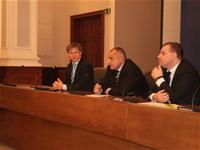 The prime minister went on with defending Bulgarian interests, especially Bulgaria to receive additionally 226 mn euro after it is decided the ceiling on direct payments to be reached in 2014 instead of 2016. "You understand for what insignificant amount of money how many disputes are being held". That the money is not enough is true, but this is only the money for Bulgaria. When assessing for how much money member states argue, we should include the money for the other new member states, whose ceilings are not reached yet.
The prime minister went on with defending Bulgarian interests, especially Bulgaria to receive additionally 226 mn euro after it is decided the ceiling on direct payments to be reached in 2014 instead of 2016. "You understand for what insignificant amount of money how many disputes are being held". That the money is not enough is true, but this is only the money for Bulgaria. When assessing for how much money member states argue, we should include the money for the other new member states, whose ceilings are not reached yet.
And it would be even better if Bulgaria after all would clearly define its major interests in the area of agriculture, to assess which sectors still need support and which are just on an artificial breathing and to consider reaching maximum efficiency - enough quality food that would be suitable both for exports and for the local market. But until various underdeveloped regions are being considered as potential voters, there is no way not only the reform of CAP to happen but Bulgaria to reach at least average economic development.
And another thing that would be good Bulgaria to do as advised many times - to create a good system for control and to guarantee a full transparency so that taxpayers to be able to see clearly for what they pay, what the results are and what the benefits. But this cannot happen while on key positions people with false diplomas are being appointed, without any professional experience and knowledge. And finally - it is not bad the government to defend national interests but it is better if it could first realise whom it is comparing itself with. To hint that the EU expresses solidarity in large scales to other countries and this is why it has to think about you is, to put it mildly - ridiculous against the backdrop of the stakes.
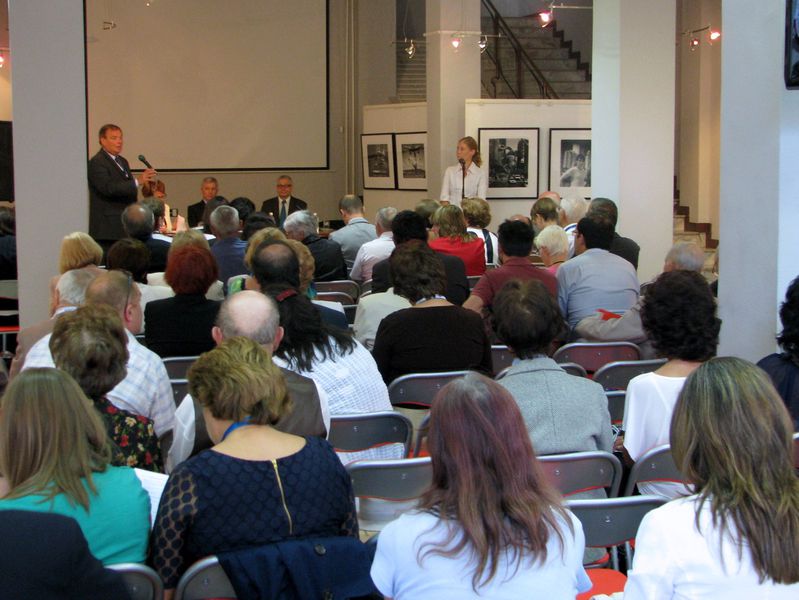 | © Polish Embassy in Sofia
| © Polish Embassy in Sofia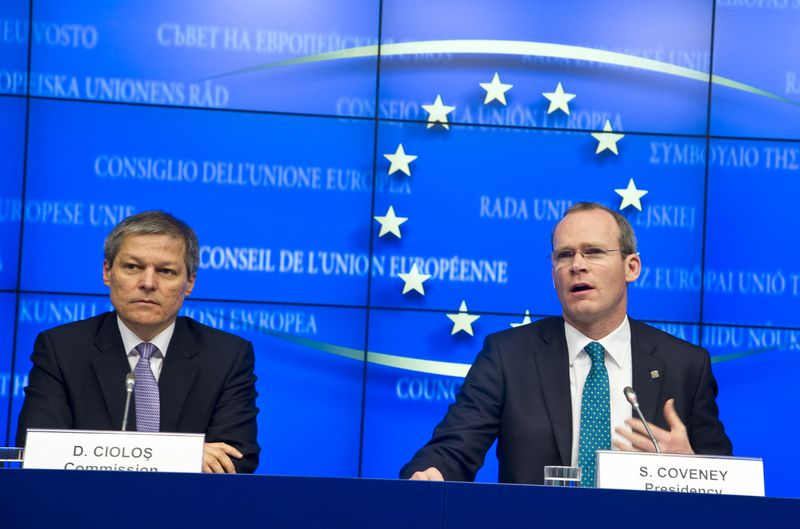 | © Council of the EU
| © Council of the EU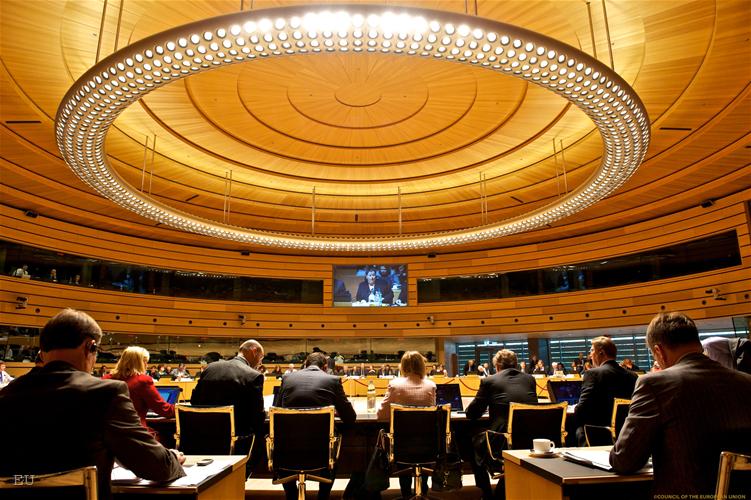 | © EU
| © EU